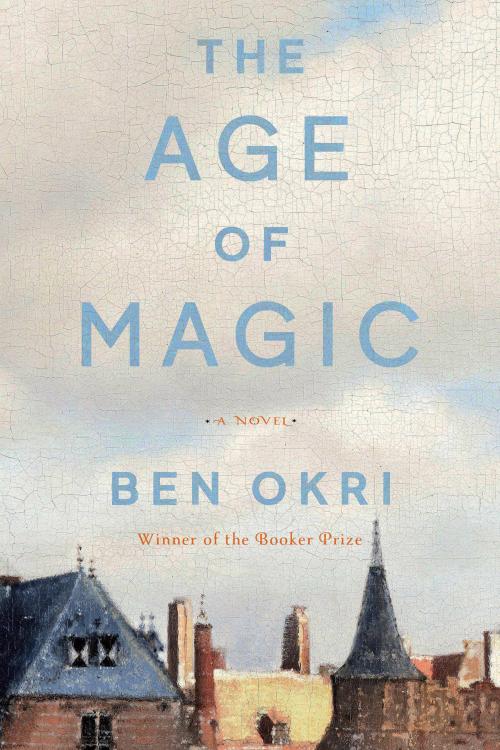Introduction to The Age of Magic
It began with discerning myth in everyday life. Then it was seeing how lived events revealed the hidden terrain, contours of the soul. One looked at the surface for signs of the depths. Then one treated the signs that daily life revealed as guides or codes on the journey, which when heeded opens the true destiny. There was the belief that life is not accidental, that it was a matter of how to read it.
To read the world like a text unveils something wondrous beneath the ordinary. In this way it is not an era referred to in the title, but something constant underneath, if one can orientate oneself correctly, if one can but see right.
The characters in this novel continue a quest not really to a place, but to a mythic, a magical, state of being. Everything has to be concrete before it can be symbolic or metaphysical. The journey is concrete, the places are real though disguised, and the people are real though transformed. Into the mold of the real, the unreal has been poured, or is it the other way round?
It was in this novel that I first used the injunction “Read slowly.” It was in this novel that I first discovered that the destination of a piece of writing is not the end of the work but each moment of its existence, each phase of its rhythm. Ideally this book can be read as a poem or a novel. At any
moment Arcadia can be revealed to you. Arcadia, or the necklace of arcadias, is what the novel makes possible for each reader. May you find the Arcadia that is right for you in this book. Many of them have been planted in the text, ready to germinate in the awaiting consciousness.
Sometimes a narrative is an excuse for the soul to dream, for the heart to rest. Sometimes a narrative is an excuse for an unknown myth to be incarnated. There are three ways to read this book. You can read the narrative on the surface, a journey by eight characters to Arcadia, with challenges and halts along the way. You can read what is below the surface, a secret world of hints and symbols. Then you can read what you yourself find, the alternative narrative that your soul makes up as it progresses through the mirror of these pages. Each time I strive to write a magic book, and each time I begin again. For the meaning and possibility of that magic changes each time I emerge into the mysterious dream of life.
BOOK ONE
The Journey as Home
One
Some things only become clear much later.
Two
They were on the train from Paris to Switzerland when the white mountains and the nursery rhythms of the wheels lulled him to sleep. He found himself talking to a Quylph.
“What are you afraid of?” it said.
“Why should I be afraid of anything?” Lao replied.
“Maybe you are afraid of Malasso?”
“Why should I be afraid of him?”
“Everyone else is.”
“I don’t know him.”
“People are afraid of what they don’t know.”
“Never met him. Why should I be scared of him?”
“You tell me.”
Lao became aware, out of the corner of his eyes, that everything seemed luminous. In a compartment full of businessmen, tourists, and young lovers the Quylph looked perfectly at ease. This bothered Lao.
“Then it must be life you are afraid of,” the Quylph said after a while.
There are some conversations so strange that they are only remembered much later, but not noticed at the time.
The Quylph, in a unique space, occupied the seat across from Lao. He felt lucky to see it.
With a hint of amusement, it said:
“Do you know what the luckiest thing is?”
“No.”
“It is to be at home everywhere.”
Outside the window the mountains changed from white to green.
“You may see me again later,” smiled the Quylph.“But don’t look out for me.”
“Wait! I want to ask you a question.”
“You had your chance,” the Quylph said with an expression at once malicious and droll. “Be more awake next time.”
Three
Lao slept in a shining orb. He woke up at his table, with a book on his lap, and the world was different. The jagged mountains raced past the large window. Mistletoe was asleep with a smile on her face. At that moment Jim, the director of the documentary they were making, appeared in front of him.
“We need to film you interviewing your fellow passengers.” Lao stared blankly at Jim’s benign jowled face. He was still trying to decipher the inscription that was the Quylph and
his hearing was slow.
“Are you all right?” Jim said.
“Fine! Great! When do you want me?”
“Whenever you’re ready.”
“I’m ready now.”
It turned out that Jim wasn’t. He had figured Lao would give him trouble for about thirty minutes, which would have given Sam, the cameraman, enough time to finish his shots at the other end of the train. Jim had expected Lao to be difficult, and was a little annoyed that he wasn’t. On the whole, Lao thought, we don’t like people changing on us. It means we have to change too, and we dislike making the effort. We prefer them predictable. Jim stood there not knowing what to do. Lao sat back down, and Mistletoe woke up.
“Come get me when you are ready,” Lao said.
“I’m ready,” said Mistletoe.
“Okay,” said Jim, leaving reluctantly.
“Not you,” Lao said, squeezing Mistletoe’s hand.

